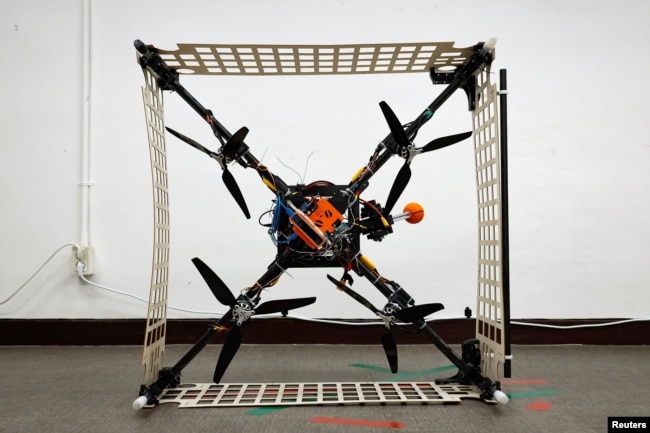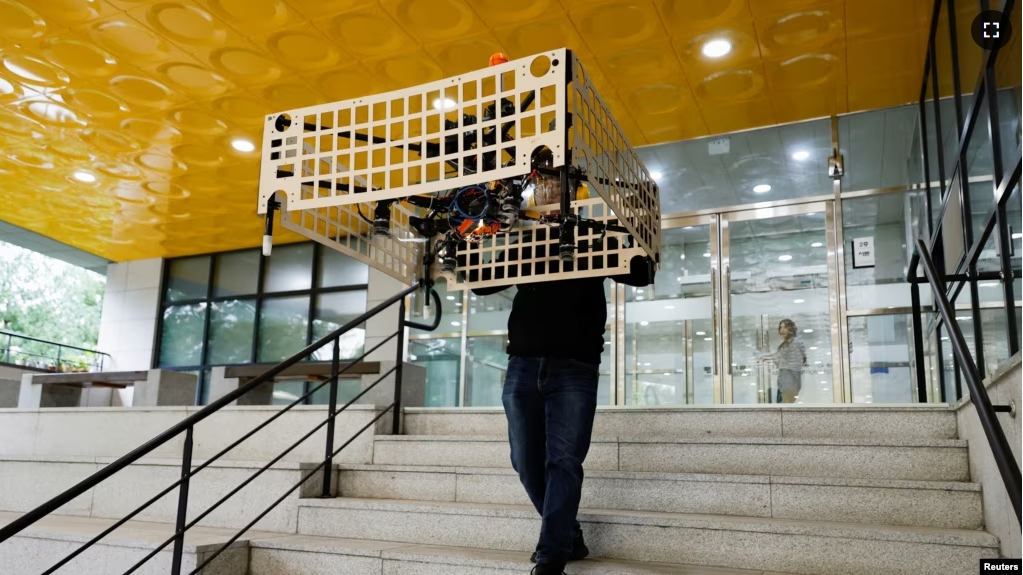South Korean researchers have developed a drone designed to stay level when transporting goods over many kinds of surfaces.
A team at Seoul National University of Science and Technology built a prototype, or test model of the drone. The team recently demonstrated the aircraft for reporters from Reuters.
The prototype has a transport carrier attached to a drone structure. It is supported by several propellers and rotors that control its height, speed and direction in the air. The aircraft has a handle workers can push to guide it where it needs to go.
Members of the development team showed how the drone can keep itself level while floating, even when transporting goods up or down stairs. Leaders of the research say the drone is programmed to predict human actions for effective interactions.
Lee Seung-jae is a professor of mechanical system design engineering at Seoul National University of Science and Technology. He was a leader of the project. The research results appeared in a study in IEEE Robotics and Automation Letters. The publication is part of the Institute of Electrical and Electronics Engineers, based in New York.
Lee told Reuters tests of the drone showed it could transport objects up to 3 kilograms. He admitted this weight restriction likely limits the drone’s use cases for many businesses. But he noted that the transporter’s design and operating equipment could be used to create a series of other kinds of drone vehicles.
Lee said one example would be to use the transporter to carry sensitive or breakable materials. The technology could also be used to develop “flying taxis” to transport humans, he added.

When used in a flying taxi, Lee said the drones could be used to change batteries while still flying in the air, instead of having to return to a ground station for recharging.
In general, experts say drones with multiple propellers are easier to control and move in many different settings. But they are also slower and cannot travel as far on a battery charge.
Drones with multiple rotors have already been used to transport small amounts of goods, food and medical supplies. But experts say it is difficult to widely expand use of such drones for commercial purposes. This is because such activities would require larger batteries a smaller aircraft could not support.
I’m Bryan Lynn.
Reuters reported this story. Bryan Lynn adapted the report for VOA Learning English.
___________________________________________
Words in This Story
drone – n. a pilotless aircraft
propeller – n. a piece of equipment made of two or more flat metal pieces that turn around and cause an aircraft to move
rotor – n. a part of a machine that spins, especially the device supporting the turning blades of an aircraft
handle – n. the part of something a person uses to hold or open it
battery – n. an object that provides electricity for things such as radios, toys, cars, etc.
commercial – adj. relating to the selling and buying of goods or services
